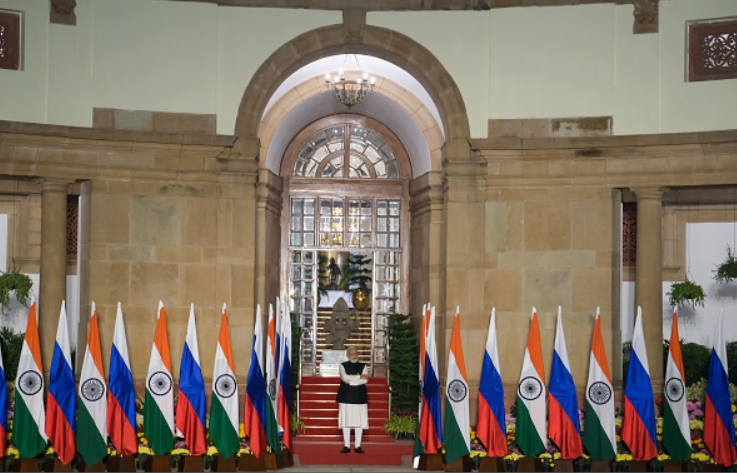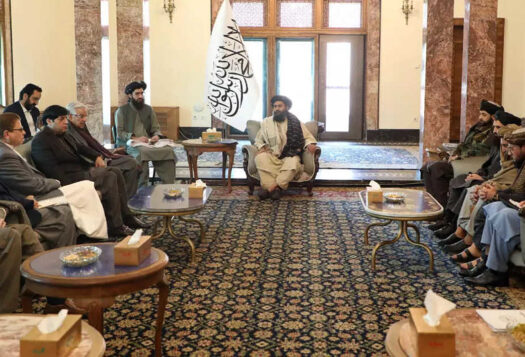
A month into the conflict, Russia’s invasion of Ukraine is regarded as a failure. In the opening days of fighting, Russia was unable to capture any major cities, underestimating Ukraine’s military strength and public opposition to Russian occupation. As the war dragged on, Russian strategists miscalculated the logistics necessary for a prolonged invasion and failed to anticipate the West’s cohesive response, leading to a stalemate. Although Western governments blame the poorly planned invasion on Putin’s irrational decisions, deeper biases in Russia’s intelligence and military bureaucracies may be at the root of Russia’s reckless war.
Under President Putin’s leadership, authoritarian nationalism has seeped into supposedly apolitical Russian institutions. The intelligence and security communities in charge of planning for the war in Ukraine, especially the Foreign Intelligence Service (SVR) and the Main Directorate of the General Staff (GRU), have ceased to be meritocracies of ideas, confirming top-down assumptions rather than operating as independent analysts. Individuals who mirror the government’s beliefs are rewarded, while those who challenge Putin’s viewpoints are sidelined. With all intelligence filtered through this intellectually corrupt system, Putin may be a rational actor in an irrational system of his own creation.
Russia’s experience offers a cautionary tale for India, which faces similar challenges to its institutional integrity amid a wave of nationalism and democratic backsliding, linked to the ruling Bharatiya Janata Party (BJP) and its populist leader Prime Minister Narendra Modi. In March 2021, Freedom House’s annual report on global political rights and civil liberties downgraded India from a “free,” to “partially free,” while the V-Dem Institute characterized India as an “electoral autocracy,” representing one of the sharpest democratic declines in the last decade. In comparison, Russia remains far less democratic than India, and is listed as “not free” and an “electoral autocracy.”
… India’s government has doubled-down on nationalist rhetoric, using moments of crisis to unify the country and bolster support for BJP rule. While this strategy supports Modi’s short-term political ambitions, it may provide harmful incentives to bureaucracies.
India’s rapid autocratization foreshadows challenges to institutional independence and crisis management capabilities, similar to the obstacles currently constraining Russia’s foreign policy bureaucracies. Prime Minister Modi has a history of politicizing state power and silencing dissent in the media. As Chief Minister of Gujarat in 2002, Modi refused to deploy the Indian Army from their barracks to quell anti-Muslim violence, resulting in 1000 deaths and setting a precedent for the politicization of military power. In February 2019, Modi escalated the Pulwama-Balakot crisis by deploying the Indian Air Force to strike Pakistan, once again elevating hawkish voices within government bureaucracies, demonstrating risk-taking, and heightening the chance for further escalation. After the abrogation of Jammu and Kashmir’s statehood in 2019, Modi silenced dissent in the media and deployed the army to brutally suppress protests. Within his own government, Modi has also taken steps to centralize decision-making power within the Prime Minister’s office, dismantling India’s checks and balances that were historically vital in its foreign policy.
Only three years after the Pulwama-Balakot Crisis and amid an ongoing conflict with China following the 2020 Galwan Clash, India continues to face existential threats along its borders. In response to these developments, India’s government has doubled-down on nationalist rhetoric, using moments of crisis to unify the country and bolster support for BJP rule. While this strategy supports Modi’s short-term political ambitions, it may provide harmful incentives to bureaucracies. Just as institutional decay led President Putin to pursue an unwinnable war, bolstering nationalism and hawkish voices in India’s institutions will increase the chance of crisis escalation and strategic miscalculation.
Editor’s Note: This article is part of a series of SAV Editors’ reflections on Russia’s invasion of Ukraine and its implications for South Asia. Read the full series here.
***


